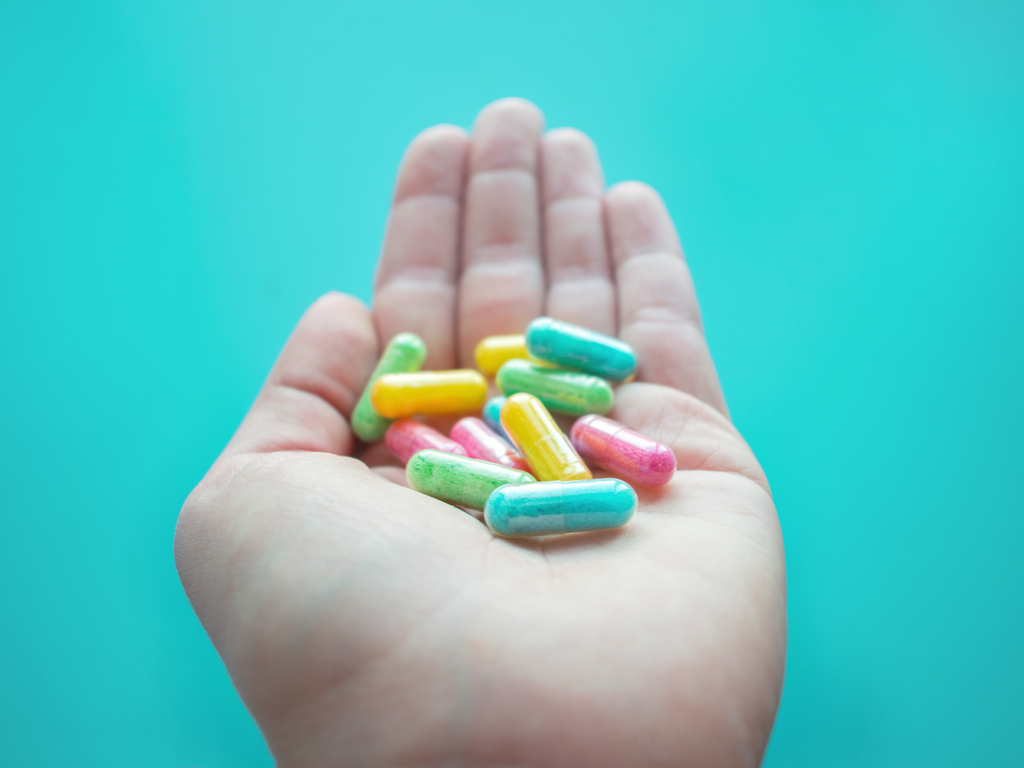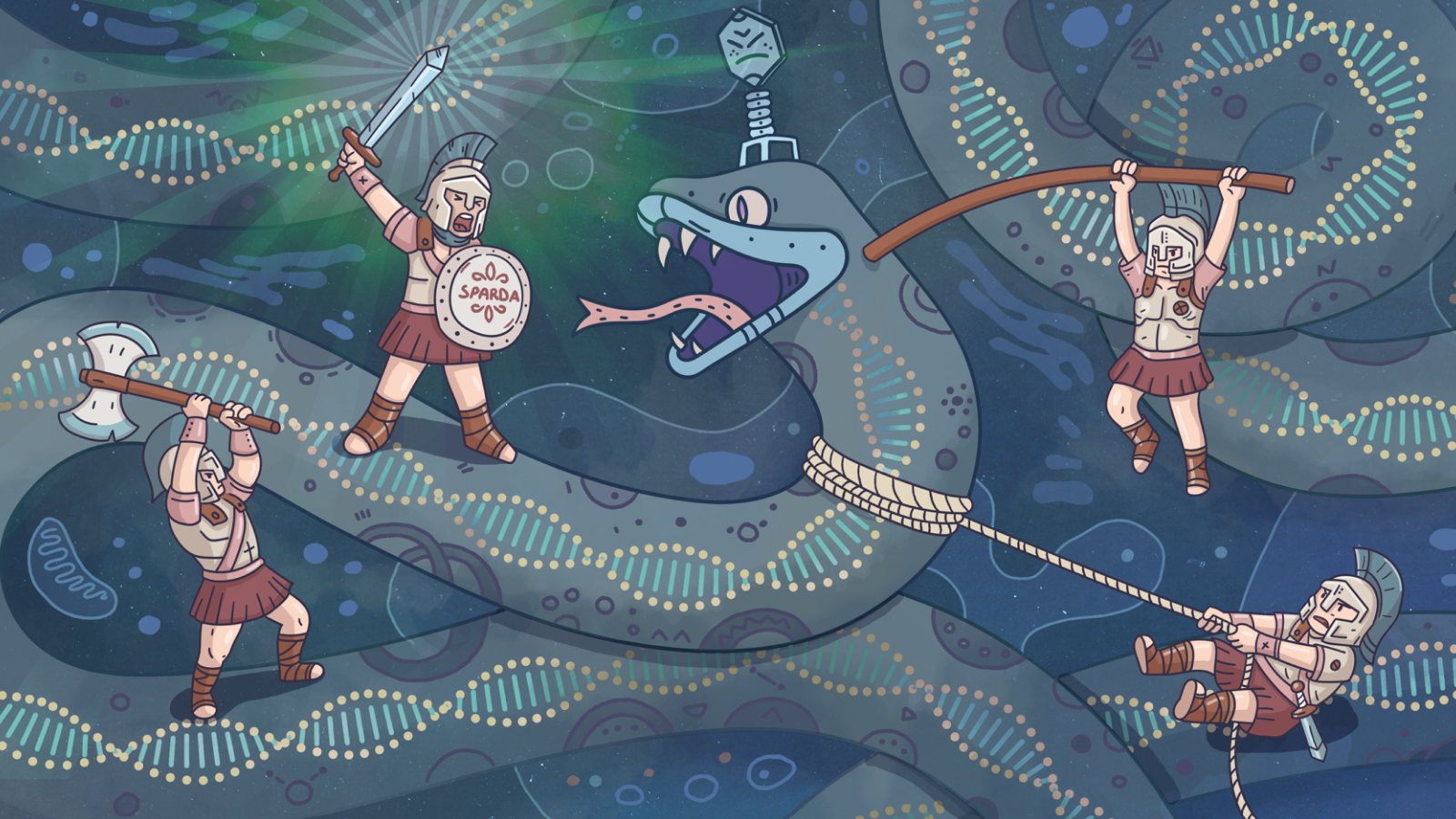Some 'Brain-Boosting' Supplements Contain High Levels of Unapproved Drug
Researchers uncovered unapproved drugs in several "nootropics."

Some supplements marketed to improve memory and boost brain power contain extremely high levels of an unapproved drug, according to a new study.
Researchers unearthed an unapproved drug called piracetam lurking in several brain-enhancement supplements, also known as "nootropics." Although approved as a prescription drug in Europe, piracetam is not approved in the United States for any conditions,and can cause a slew of psychological side effects, including anxiety, depression and insomnia, according to the new study, published today (Nov. 25) in the journal JAMA Internal Medicine.
The results showed that some supplement brands contained about 20% more piracetam than what was listed on the products' label. In some cases, if consumers followed the dosage directions on the label they would be at risk of consuming more than 11,000 milligrams of the drug each day — far more than any over-the-counter medication would contain.
"As soon as we move into dosages that are much higher than prescription, all bets are off about how these supplements might affect the brain," said study co-author Dr. Pieter Cohen, a general internist at the Cambridge Health Alliance and an associate professor of medicine at Harvard Medical School.
Related: 9 Disgusting Things That the FDA Allows in Your Food
Unlike pharmaceutical drugs, nootropics and other dietary supplements don't undergo an arduous approval process before being put on the market, according to the U.S. Food and Drug Administration (FDA). The FDA classifies supplements as food, not medication, a technicality that allows supplement producers to sell their wares without first proving that they are safe and effective. Although the FDA bans the use of unapproved drugs in nootropics, without regulatory oversight, producers still slip potentially dangerous pharmaceuticals into "brain-boosting" supplements.
"The FDA has been crystal clear that piracetam should not be sold as a dietary supplement," Cohen added. Back in 2004, the FDA expressly forbid supplement producers from using piracetam in their products. The organization said that piracetam is "not a dietary ingredient" and cannot be marketed as such. Furthermore, any supplement containing piracetam would be classified as a new drug and would not be "recognized as safe and effective for use under the conditions prescribed, recommended, or suggested in their labeling," according to the FDA.
Get the world’s most fascinating discoveries delivered straight to your inbox.
Despite the FDA's clear stance, Cohen and his co-authors easily discovered nootropics containing piracetam with a simple Google search.
The team found 14 brain-enhancement supplements that reportedly contain piracetam. Two brands were unavailable for purchase, and seven others did not clearly display the words "dietary supplement" on their label, so the authors limited their analysis to the five remaining brands.The authors bought two samples of each brand and analyzed their ingredients.
They found that one supplement contained no piracetam at all, and the remaining four brands contained different quantities of the drug depending on the batch. Among these four brands the actual amount of piracetam varied between 85% and 118% of the amount listed on the label. Depending on which brand they bought, consumers could be exposed to about 830 mg to 11,300 mg of piracetam per day if they followed the dosing instructions.
"That's higher than the highest amount that is routinely prescribed for cognitive disorders" in Europe, Cohen said. What's more, individuals with poor kidney function cannot metabolize piracetam well and may react badly to large doses, he added. Since kidney function often declines with age and older adults represent a major market for nootropics, many consumers may face serious health risks from taking these products, he said.
Piracetam first appeared on the European drug market in 1971, advertised as the first nootropic drug to enhance cognitive function without sedating or stimulating the user, according to the U.S. National Library of Medicine. Nowadays, doctors in Europe mostly prescribe the drug to treat involuntary muscle spasms, but also prescribe the drug off-label to alleviate learning difficulties in children. In older adults piracetam is used to improve memory function and reduce dementia symptoms. Despite piracetam's long-standing reputation as a brain-booster, little research actually suggests that the drug improves cognition at all, according to a 2001 report in the journal Cochrane Systematic Review.
So, as an ingredient in U.S. supplements, piracetam fails on two counts: the drug itself is unapproved, and its purported benefits are anecdotal at best. The FDA recently sounded a warning about the potential dangers of nootropics, in general, but Cohen said no real action has been taken against supplement companies that blatantly use piracetam.
"They have not seized products containing piracetam. They have not put out a warning to consumers," Cohen said. Nonetheless, the FDA aims to improve its regulatory power over dietary supplements. A new registration process has been proposed that would require companies to submit supplement labels to the FDA to be placed in a publically available database. The FDA could then vet the labels for unapproved ingredients, issue warnings as needed and provide the public available information on the safety and efficacy of each product.
Though this is a "baby step" in the right direction, until the law governing supplements undergoes major reform, consumers and clinicians should remain aware of the false promises and hidden dangers of nootropics, Cohen said.
"They are unlikely to work," he said. "And they may contain drugs, either listed on the label or not listed on the label."
- 9 Surprising Risk Factors for Dementia
- 6 Foods That Are Good for Your Brain
- From Dino Brains to Thought Control — 10 Fascinating Brain Findings
Originally published on Live Science.

Nicoletta Lanese is the health channel editor at Live Science and was previously a news editor and staff writer at the site. She holds a graduate certificate in science communication from UC Santa Cruz and degrees in neuroscience and dance from the University of Florida. Her work has appeared in The Scientist, Science News, the Mercury News, Mongabay and Stanford Medicine Magazine, among other outlets. Based in NYC, she also remains heavily involved in dance and performs in local choreographers' work.
 Live Science Plus
Live Science Plus





